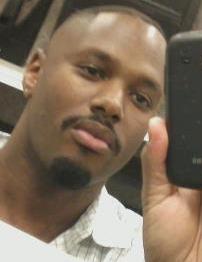"To get some respect we had to tear this muthafucka up!"
-Ice Cube "We Had to Tear This Mothafucka Up" 1992
"It's jumpin' off in Compton so I gots to get my loot on.
And come up on me some furniture or som'n,
got a VCR in the back of my car that I ganked from the Slawson Swap Meet,
and muthafuckas bet'not try to stop me!"
-Dr. Dre "The Day the Niggaz Took Over" 1992
"That's what they told us today, in other words, you still a slave.
No matter how much money you got you still ain't shit!"
-Unknown black man live from the L.A.Riots 4-29-92
Today marks exactly 20 years since one of the most significant events of the late 20th century. It's also a Sunday, and while I'd like to think the anniversary of the 1992 Los Angeles Riots falling on the Lord's resting day is a sign we won't need another uprising of this magnitude in 2012, the recent killing of Trayvon Martin and other race/hate related incidents might be saying otherwise. If justice is served and George Zimmermann is convicted, peace will prevail. But if that doesn't happen there's a chance Florida will find itself in the midst of what California experienced 20 years ago. In acknowledgement of that moment in time when people of my generation served some serious notice to America, I've posted a piece of what I wrote about it in the "Rebirth and Death" chapter from my book Sex Time And Radio Vol. 1 & 2: Blueprint of a Radio Star. At the end of this blog are links to YouTube clips of two songs that dealt with the historic event. This revolution was not only televised, it was documented on CDs that sold over 6 million units combined!---M Chapman
With Death Certificate, Ice Cube was clearly challenging young blacks to reach beyond what we thought was possible for us. But despite his intentions, he and the album were slammed by the mainstream media and labeled as racist. The bulk of the complaints were about the songs “No Vaseline” and “Black Korea”. “No Vaseline” was actually Cube’s response to NWA, who had dissed him after he left the group on their EP 100 Miles and Runnin’ and their album Efil4zaggiN (“Niggaz4life” spelled backwards). It was easily the hardest diss song in rap history, and was the most popular cut on the album when it was first released. Cube blamed the group’s white Jewish manager Jerry Heller for breaking them up, and basically called NWA hypocrites by saying “you can’t be the nigga 4 life crew with a white Jew tellin’ you what to do!” That line, along with the proclamation to “get rid of that devil real simple, put a bullet in his temple”, created cries that Ice Cube was anti-Semitic. The warning in “Black Korea” to “pay respect to the black fist, or we’ll burn your store right down to a crisp”, and its use of dialog from Spike Lee’s film Do the Right Thing, created cries of him being racist against Asians. Some radio stations around the country, including WGCI in Chicago Oregon made it illegal to display Ice Cube’s image in a retail outlet” and “Black Korea” and “No Vaseline” were actually taken off of the album in the UK
But many of these media folks were fooling themselves with their own arrogance. Despite all the talk of banning Ice Cube, the song “Steady Mobbin” became a major hit. Although it only reached #30 on the Billboard black singles chart, it was easily the hottest song out at the time with the main rap audience. Plus Death Certificate spent 3 weeks in the #1 spot on the black album chart, reached #2 on the pop chart, and sold well over a million copies. As Cube put it in the album’s opening track, “I’m platinum bitch and I didn’t have to sell out!” because as the title suggested he was “The Wrong Nigga to Fuck Wit”.
One of the most common aspects of American society is its ability to denounce those who deliver bitter messages while completely ignoring the fucked up conditions within the society that make the messages necessary in the first place. Ice Cube was showing a genuine concern for his own people, not a hatred of others. Those who argued against the song “Black Korea” either ignored or were unaware of an altercation in March of 1991 between a 15-year-old black girl named Latasha Harlins and a Korean store owner in L.A. Superior Court of Los Angeles County Los Angeles
Ice Cube’s words might have been harsh, but he was expressing the real feelings of people in his community. In fact, he had been warning about the tension in black neighborhoods for his whole career up to that point, especially the tension in South Central L.A.
In March of 1991, a black man named Rodney King was severely beaten by four For people around my age, riots were something that we saw on old documentaries about the 1960s or read about in history classes. But this wasn’t a book or a movie, this motherfucker was real! Though I wasn’t anywhere near
Read more in paperback or Kindle ebook by clicking here: http://www.amazon.com/Sex-Time-Radio-Vol-Blueprint/dp/1463716966/ref=ntt_at_ep_dpt_2
Riot theme #1: <iframe width="420" height="315" src="http://www.youtube.com/embed/efrM6DK8vbA" frameborder="0" allowfullscreen></iframe>
Riot theme #2: <iframe width="560" height="315" src="http://www.youtube.com/embed/UyyU6eSROnc" frameborder="0" allowfullscreen></iframe>
